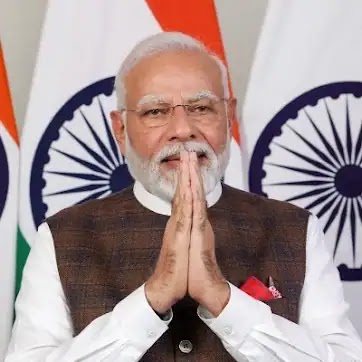In today's digital age, social media platforms have emerged as influential players in shaping political discourse and public opinion. With billions of users worldwide, platforms such as Facebook, Twitter, and Instagram have become powerful tools for political communication, enabling politicians, activists, and citizens to engage in discussions, share information, and mobilise support like never before.
Amplifying Voices: Democratizing Political Participation
One of the key impacts of social media on political discourse is its ability to amplify voices and democratise political participation. Through social media, individuals from diverse backgrounds and perspectives can voice their opinions, share their experiences, and advocate for causes that matter to them. This democratization of political expression empowers citizens to engage directly with political issues, bypassing traditional gatekeepers and institutions.
Fostering Polarisation: The Echo Chamber Effect
However, the proliferation of social media has also contributed to the polarisation of political discourse, creating echo chambers where like-minded individuals reinforce their beliefs and opinions while dismissing opposing viewpoints. Algorithms designed to maximise user engagement often prioritise content that aligns with users' existing preferences, leading to filter bubbles that limit exposure to diverse perspectives and foster ideological extremism.
Combatting Misinformation: The Challenge of Fake News
Another significant impact of social media on political discourse is its role in disseminating misinformation and fake news. The rapid spread of false or misleading information on social media platforms can fuel conspiracy theories, undermine trust in institutions, and distort public perception of political issues. Combatting misinformation requires vigilant fact-checking, media literacy initiatives, and responsible sharing practices among users.
Engaging Younger Generations: Mobilising Youth Participation
Despite its challenges, social media has also emerged as a powerful tool for mobilising youth participation in politics. Platforms such as TikTok and Snapchat have become popular channels for political engagement among younger generations, who are often more active on social media than traditional forms of media. Political campaigns and advocacy groups increasingly leverage social media to reach and mobilise young voters, recognising their potential to influence electoral outcomes.
Fostering Civic Engagement: Encouraging Active Citizenship
Beyond electoral politics, social media has the potential to foster broader civic engagement and activism. From grassroots movements to online petitions and digital advocacy campaigns, social media platforms enable citizens to organise, mobilise, and effect change on a wide range of social and political issues. By lowering barriers to participation and amplifying marginalized voices, social media can empower individuals to become active agents of social and political change.
Conclusion: Navigating the Complexities of Social Media
In conclusion, the impact of social media on political discourse is multifaceted, encompassing both opportunities and challenges. While social media platforms have the power to amplify diverse voices, mobilise citizen participation, and democratise political engagement, they also contribute to polarization, misinformation, and filter bubbles. Navigating the complexities of social media requires critical thinking, media literacy, and responsible use of digital platforms. By fostering open dialogue, diverse perspectives, and fact-based discourse, we can harness the potential of social media to enrich political discourse and strengthen democratic participation in the digital age.
Combatting Misinformation: The Challenge of Fake News
Another significant impact of social media on political discourse is its role in disseminating misinformation and fake news. The rapid spread of false or misleading information on social media platforms can fuel conspiracy theories, undermine trust in institutions, and distort public perception of political issues. Combatting misinformation requires vigilant fact-checking, media literacy initiatives, and responsible sharing practices among users.
Engaging Younger Generations: Mobilising Youth Participation
Despite its challenges, social media has also emerged as a powerful tool for mobilising youth participation in politics. Platforms such as TikTok and Snapchat have become popular channels for political engagement among younger generations, who are often more active on social media than traditional forms of media. Political campaigns and advocacy groups increasingly leverage social media to reach and mobilise young voters, recognising their potential to influence electoral outcomes.
Fostering Civic Engagement: Encouraging Active Citizenship
Beyond electoral politics, social media has the potential to foster broader civic engagement and activism. From grassroots movements to online petitions and digital advocacy campaigns, social media platforms enable citizens to organise, mobilise, and effect change on a wide range of social and political issues. By lowering barriers to participation and amplifying marginalized voices, social media can empower individuals to become active agents of social and political change.
Conclusion: Navigating the Complexities of Social Media
In conclusion, the impact of social media on political discourse is multifaceted, encompassing both opportunities and challenges. While social media platforms have the power to amplify diverse voices, mobilise citizen participation, and democratise political engagement, they also contribute to polarization, misinformation, and filter bubbles. Navigating the complexities of social media requires critical thinking, media literacy, and responsible use of digital platforms. By fostering open dialogue, diverse perspectives, and fact-based discourse, we can harness the potential of social media to enrich political discourse and strengthen democratic participation in the digital age.
Login With Google Account





